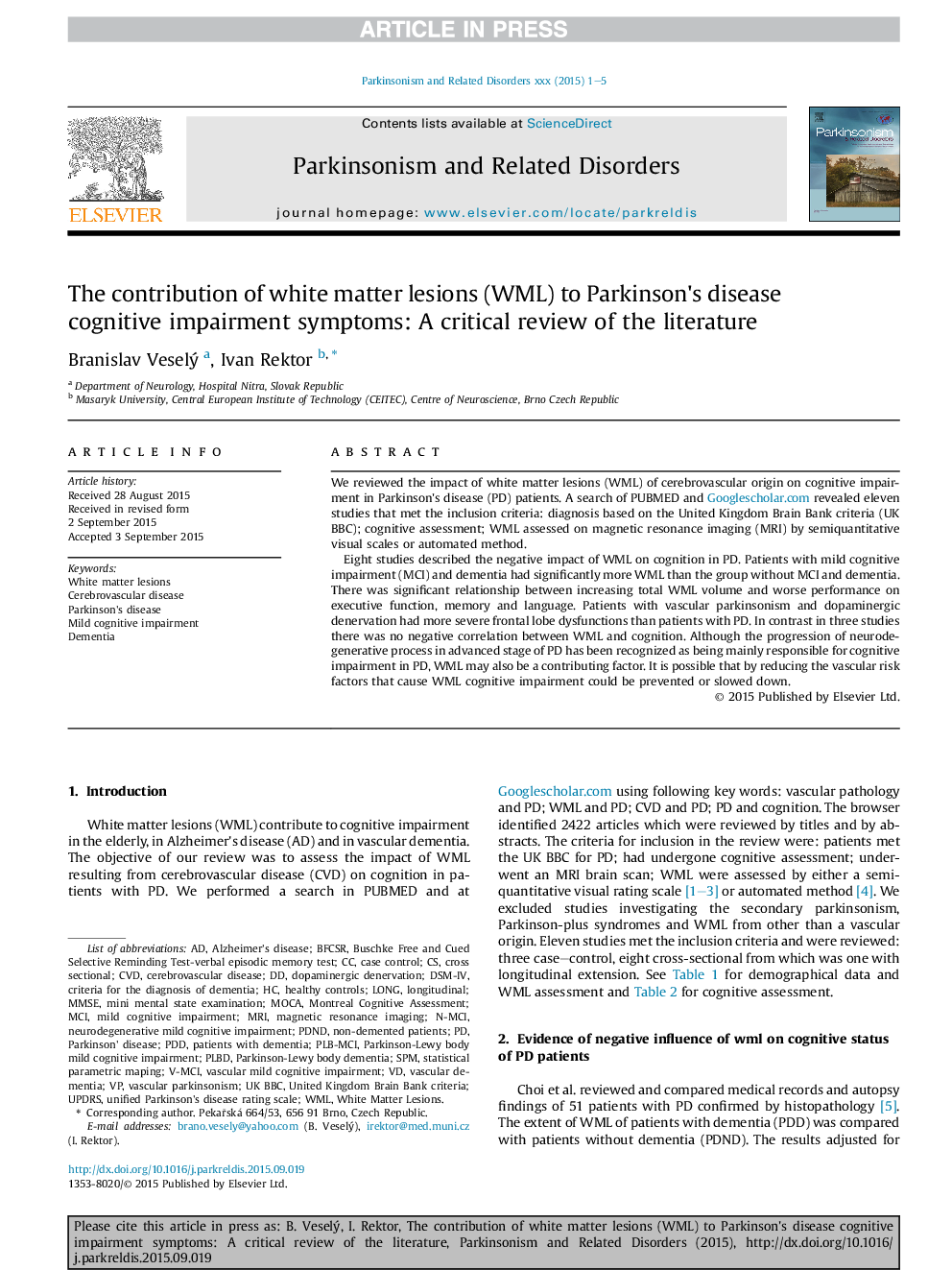| Article ID | Journal | Published Year | Pages | File Type |
|---|---|---|---|---|
| 10745109 | Parkinsonism & Related Disorders | 2016 | 5 Pages |
Abstract
Eight studies described the negative impact of WML on cognition in PD. Patients with mild cognitive impairment (MCI) and dementia had significantly more WML than the group without MCI and dementia. There was significant relationship between increasing total WML volume and worse performance on executive function, memory and language. Patients with vascular parkinsonism and dopaminergic denervation had more severe frontal lobe dysfunctions than patients with PD. In contrast in three studies there was no negative correlation between WML and cognition. Although the progression of neurodegenerative process in advanced stage of PD has been recognized as being mainly responsible for cognitive impairment in PD, WML may also be a contributing factor. It is possible that by reducing the vascular risk factors that cause WML cognitive impairment could be prevented or slowed down.
Keywords
UPDRSParkinson' diseaseWMLMoCADSM-IVMMSEPDDSPMmild cognitive impairmentMontreal Cognitive AssessmentMRIDopaminergic denervationAlzheimer's diseaseCerebrovascular diseaseParkinson's diseaseMagnetic resonance imagingDementiaVascular dementiaCVDWhite matter lesionslongLongitudinalMini Mental State ExaminationCross sectionalUnified Parkinson's Disease Rating ScaleMCIVascular parkinsonismCase controlhealthy controls
Related Topics
Life Sciences
Biochemistry, Genetics and Molecular Biology
Ageing
Authors
Branislav Veselý, Ivan Rektor,
